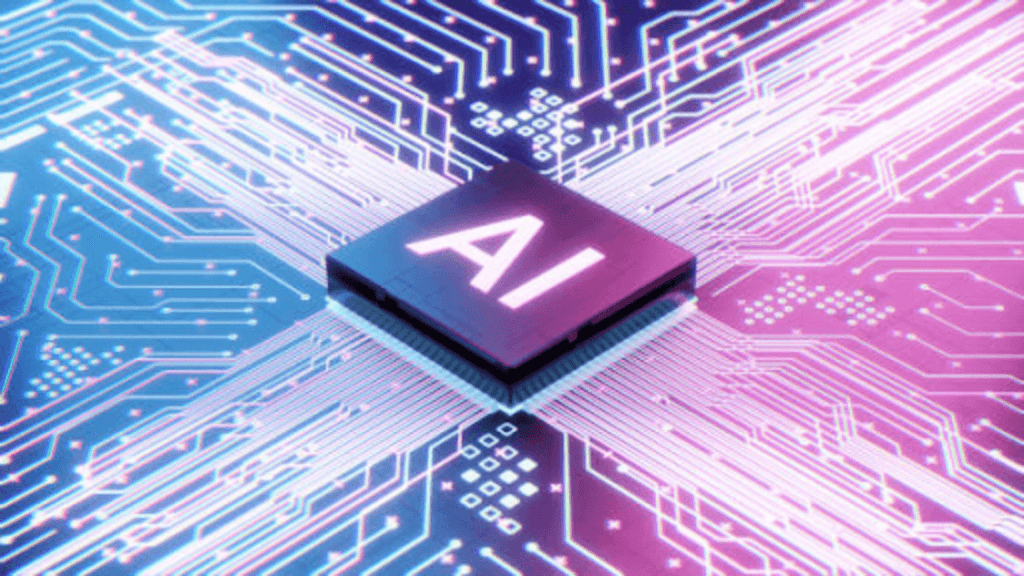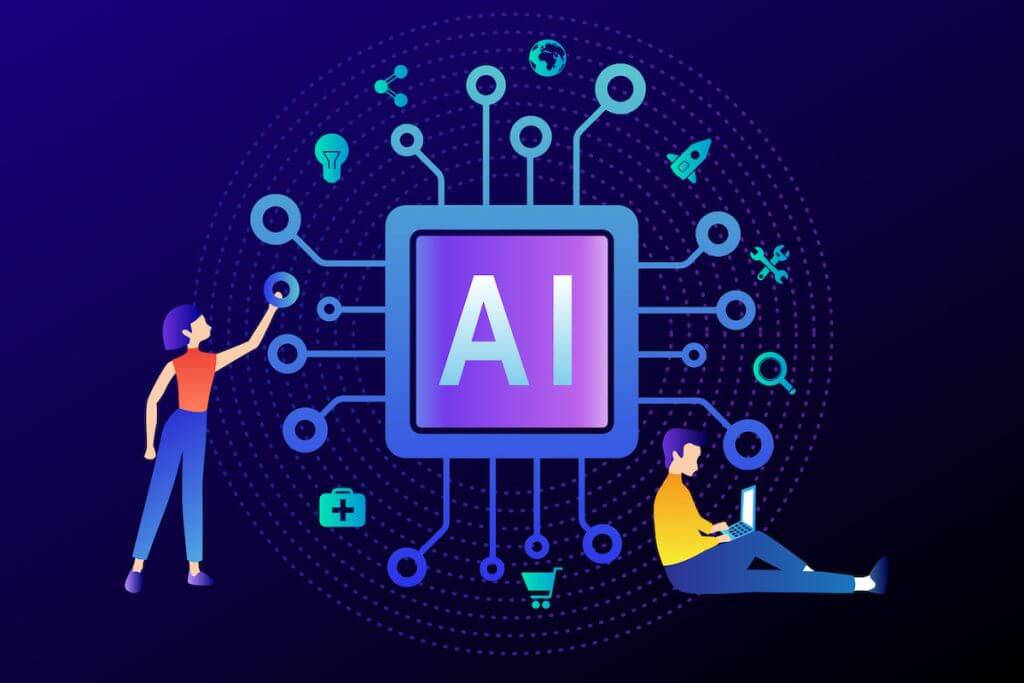
In the ever-evolving landscape of digital marketing, the infusion of artificial intelligence (AI) has emerged as a game-changer. AI is reshaping the way businesses connect with their audience, understand consumer behavior, and optimize their marketing efforts. In this article, we will explore the pivotal role of AI in revolutionizing digital marketing, its impact on various aspects of the industry, and the promising future it holds.
The Rise of Artificial Intelligence
Artificial intelligence is the simulation of human intelligence processes by machines, especially computer systems. It encompasses a range of technologies, including machine learning, natural language processing, and computer vision, among others. Over the past decade, AI has made significant strides and is now an integral part of various industries, including healthcare, finance, and, notably, digital marketing.
The Impact on Digital Marketing
AI has a profound impact on digital marketing, transforming the way businesses approach their marketing strategies and execute campaigns. Here are some key areas where AI is revolutionizing the digital marketing landscape:
1. Data Analysis and Insights:
AI enables the efficient analysis of vast amounts of data, providing valuable insights into consumer behavior, preferences, and trends. Marketers can use this data to make data-driven decisions and tailor their strategies accordingly.
2. Personalization:
AI-powered algorithms can create highly personalized marketing campaigns by segmenting audiences and delivering tailored content and product recommendations. This personal touch enhances customer engagement and satisfaction.
3. Chatbots and Virtual Assistants:
Chatbots and virtual assistants driven by AI are increasingly used for customer service and support. They can provide immediate responses to customer inquiries, improving user experiences and engagement.
4. Content Creation:
AI tools can generate content, including articles, product descriptions, and social media posts, at scale. This streamlines content marketing efforts and reduces the time and resources required for content production.
5. Search Engine Optimization (SEO):
AI algorithms are employed in SEO to analyze search engine ranking factors, assess website performance, and suggest optimization strategies. This helps businesses improve their online visibility and search engine rankings.
6. Predictive Analytics:
AI-driven predictive analytics can forecast trends and consumer behavior, aiding businesses in making proactive marketing decisions and staying ahead of the competition.
7. Email Marketing:
AI is utilized to optimize email marketing campaigns by analyzing user behavior and tailoring email content and timing for maximum effectiveness.
8. Programmatic Advertising:
Programmatic advertising relies on AI algorithms to automate the buying of ads and target specific audiences in real time. This results in more efficient and cost-effective ad campaigns.
9. Social Media Marketing:
AI tools help businesses schedule posts, analyze social media performance, and engage with followers by automating responses and delivering targeted ads to specific demographics.
Benefits of AI in Digital Marketing
The integration of AI into digital marketing comes with numerous benefits for businesses and marketers:
1. Efficiency:
AI automates many time-consuming tasks, such as data analysis and content creation, allowing marketers to focus on strategy and creativity.
2. Improved Decision-Making:
AI provides data-driven insights that aid in making informed decisions about marketing strategies, target audiences, and content.
3. Cost Savings:
Automation and optimization through AI can lead to cost savings by reducing the need for manual labor and improving the efficiency of marketing campaigns.
4. Personalization:
AI enables highly personalized marketing efforts, which can lead to increased customer engagement and loyalty.
5. Better Customer Experiences:
AI-driven chatbots and virtual assistants provide instant responses and support, enhancing customer experiences and satisfaction.
6. Data Security:
AI can be used to detect and prevent cybersecurity threats, safeguarding customer data and business reputation.
Examples of AI in Digital Marketing
To grasp the transformative power of AI in digital marketing, let’s delve into some real-world examples:
1. Chatbots:
Many websites and social media pages employ chatbots to engage with visitors in real time. These bots answer questions, assist with purchases, and offer customer support.
2. Recommendation Engines:
E-commerce platforms, streaming services, and content websites use recommendation engines to suggest products, shows, or articles to users based on their past behavior and preferences.
3. Dynamic Pricing:
AI algorithms analyze market conditions, demand, and competitor pricing to adjust product pricing in real time for maximum profitability.
4. Predictive Analytics:
Retailers and e-commerce platforms leverage predictive analytics to forecast which products will be popular during specific seasons or events. This helps with inventory management and marketing planning.
5. Email Marketing:
AI can optimize email marketing by analyzing open and click-through rates, suggesting the best times to send emails, and personalizing email content for each recipient.
6. Voice Search Optimization:
As voice-activated devices like smart speakers become more prevalent, AI is used to optimize websites for voice search by understanding natural language queries.
The Future of AI in Digital Marketing

The role of AI in digital marketing is continually expanding and evolving. Several trends and developments are shaping the future of AI in this field:
1. AI-Generated Content:
AI-powered content creation tools are becoming more sophisticated. In the future, AI may be capable of generating even more complex content, such as video scripts and ad copy.
2. Hyper-Personalization:
AI will enable even deeper personalization of marketing efforts, with content and product recommendations tailored to individual user preferences.
3. Voice Search Domination:
With the proliferation of voice-activated devices, optimizing for voice search will become a dominant focus in SEO and content marketing.
4. AI in Influencer Marketing:
AI tools will be used to identify and evaluate potential influencers for partnerships and assess the impact of influencer marketing campaigns.
5. Augmented and Virtual Reality:
AI will play a significant role in enhancing augmented and virtual reality experiences for marketing and advertising, creating more immersive and interactive campaigns.
6. AI Ethics and Regulation:
As AI in marketing becomes more sophisticated, ethical considerations and regulations surrounding data privacy, transparency, and AI use will become increasingly important.
The Ethical Considerations
While AI offers immense potential, it also raises ethical concerns in digital marketing. Data privacy, transparency, and the responsible use of AI are paramount. Marketers must be mindful of these issues as they harness the power of AI in their campaigns.
The integration of AI in digital marketing is not just a trend; it’s a transformative force that’s reshaping the way businesses connect with their audience, understand consumer behavior, and optimize their marketing efforts. AI-driven tools and algorithms offer unparalleled efficiency, personalization, and data-driven decision-making.
As AI continues to advance and become more deeply integrated into digital marketing, businesses and marketers should remain adaptive and ethical. Embracing AI and staying informed about its developments will be essential to staying competitive and delivering exceptional customer experiences in the ever-evolving landscape of digital marketing. The future of digital marketing is undoubtedly AI-driven, and those who harness its potential will be at the forefront of the industry’s revolution.



